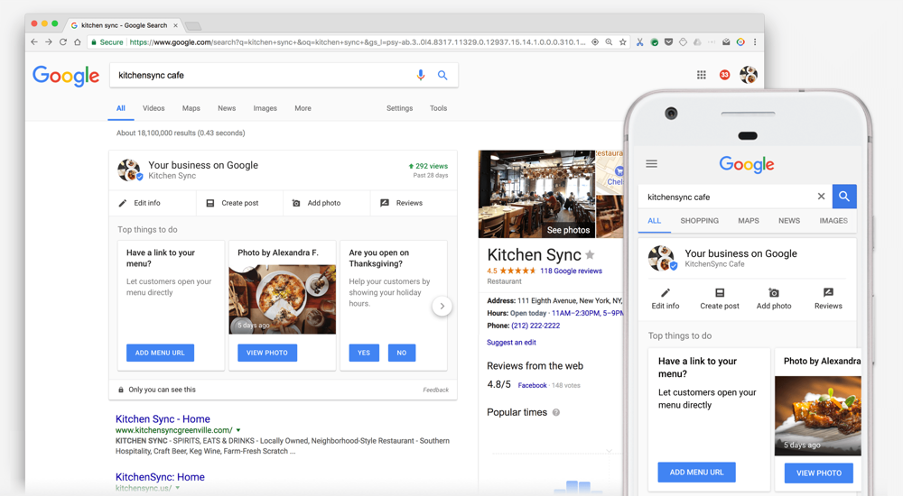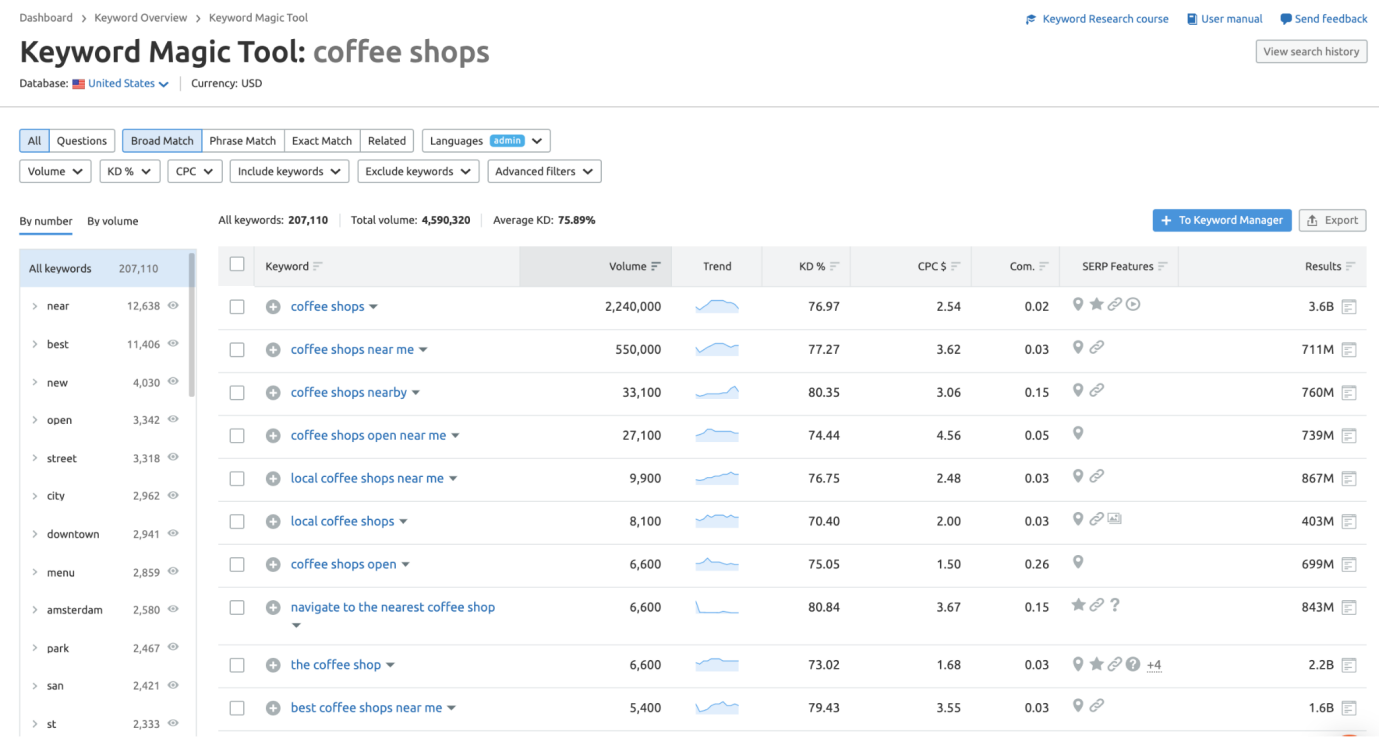If you own a local business, you want to dominate the local search results of your niche. Perhaps it is even more important today. But how do you write content that’ll pop up in those local search results? What are the key areas to focus on?
Here are the top six simple ways you can make your local SEO strategy successful.
Local SEO Tips
1. Local Keyword Research
When looking for your type of business, what local queries are your customers typing into search engines? You must get inside the minds of your audience and understand what they are looking for.
It only makes sense to target local customers with keywords relevant to their needs. You need to conduct keyword research to find low competitive yet highly profitable keyword phrases to rank for.
Ask yourself these questions before performing keyword research.
- What keywords might your target customers be using?
- Are they ready to purchase once they have enough solutions?
- Or did they simply look up your keywords?
- Would your target audience be willing to spend a lot of money?
- What search terms are my competitors ranking for?
If you haven’t conducted the keyword research already, now is the time to open Google’s Keyword Planner and perform a detailed local keyword search. This tool will allow you to filter keyword searches based on location to get an idea of the popular search terms for a given region.
2. Create and Optimize Google My Business Account
Local SEO starts with Google My Business. It is a free tool provided by Google to optimize your business website locally. Through this tool, Google can quickly identify your business.
In the digital age, Google My Business (GMB) is probably the best place to create your business profile to reach local customers through Google Search and Maps.
Here’s what a Google My Business listing looks like:
Get started now with your free Google My Business profile if you haven’t already done so. Bright Local’s step-by-step guide walks you through the whole process of getting started with GMB, from setting up your Google account to adding essential information about your business such as its category and contact details.
With the basics in place, you can focus on optimizing your profile. Keywords are a great place to begin – add your business’s keywords to your profile, just as you would on your website.
Optimizing your GMB profile with category, contact information, images, and business hours gives a significant boost in local search.
3. Engage in Local Link Building
A website’s local search engine ranking is increasingly influenced by the number and quality of links directed. Developing solid links from local websites is critical to achieving local pack visibility.
Link signals are the first- and second-most essential factors for local pack (or snack pack) results and localized organic results. Link signals are backlinks pointing to your site.
To improve your local SEO, your website must have links, but the quality of the links is vital as well.
Here are some tips on getting high-quality backlinks:
- Ensure that your website is full of high-quality content, so others will want to link to it.
- Guest posting on reputable sites with high domain authority
- Connect with local influencers on social media or by email to encourage them to link back to you.
4. Social Media Presence
A wide variety of opportunities awaits you on social media.
Despite connecting with people worldwide, we usually prefer to communicate with those in close proximity. We connect best with those we can see in person. If your business is local, you will reap the benefits of this.
Your local SEO content strategy should definitely include social media.
It’s crucial to select the right media platform to increase your online presence. Coordinating a multichannel strategy will make your message consistent across all mediums.
You can build prominence in your local area by being active on social media to encourage users to talk about you, link to you, and mention you. Essentially, when you want to create a buzz.
Besides fostering an active social media presence, you might consider courting the local press to obtain newspaper mentions, setting up guest blog spots to establish your authority, and seeking opportunities to be quoted by industry websites. All of these tactics can help you establish your profile and gain prominence.
5. Optimize for Voice Search
Voice search is the preferred information source of many individuals. The technology has become more advanced and accurate than ever, resulting in more people falling in love with it.
For this reason, it’s critical to optimize how people ask questions when they speak into devices rather than typing out their searches in local SEO.
Essentially, customers conducting voice searches tend to use more long-tail keywords than those performing regular searches. It means that you should adjust the SEO of your content to match the more conversational tone of people speaking.
Using structured data can help you discover and target long-tail keywords. Use Semrush’s Keyword Magic Tool to find and target long-tail keywords and make your content sound as natural as possible.
6. Manage Online Customer Reviews
Getting positive reviews is important for businesses listed in search engines like Google, Bing, and Yahoo. Most business owners do not know how to get positive reviews or how to respond to negative feedback. If you ignore negative reviews while hoping for positive reviews, you are hurting your online success.
But how can reviews fit into your local SEO campaign? Online reviews can have significant implications for your rankings in local search engines. If you want to increase your visibility in the local market, you must have a robust system in place to collect and display online reviews frequently.
First and foremost, you need to ask for more reviews for your GMB profile or other listings. If people aren’t aware they can leave you reviews, they are less likely to do so. If you want to build up reviews for Google, so you rank higher, make sure people know.
Negative reviews should be addressed directly, and you shouldn’t ask them to email you unless you also address their specific concern with the review.
Final thoughts
When applying any of these local SEO tips, remember the following: monitoring the results is critical, measuring progress, and making necessary adjustments.
Local SEO changes rapidly. You never know when Google will introduce new features in its SERPs for local searches, but you can always count on these changes coming. That’s why it’s essential to always stay on top of local SEO.
When it comes to increasing your local search ranking, it’s well worth putting together a comprehensive plan to ensure you can reach local consumers as they browse product listings in your area.
And if you don’t have the bandwidth to make these adjustments, you may want to look into a Local SEO services provider.




